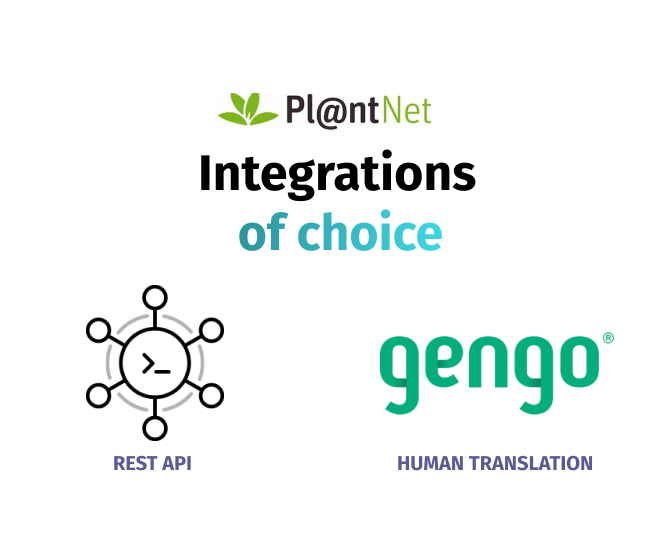Pl@ntNet, a citizen science platform dedicated to plant biodiversity, takes the place of a botanist. People can use the Pl@ntNet app to identify and learn about different types of plants and all the pictures people upload to this app are gathered and examined by researchers worldwide to better understand and conserve plant biodiversity.
The users’ contributions is what matters most for Pl@ntNet, as they strive to incorporate all 360.000 species living on earth. Thus, it is important for them to make the app available to people all over the world. As the platform started to gain global popularity, the demand for language support grew exponentially.
In this regard, they mentioned they found a match in the localization management platform POEditor, which provided them with an interface that was easy to use both for them and for the people who joined their project’s translation.
Another thing worth noting about Pl@ntNet is that it is an open source initiative and it is not focused on obtaining revenue. Thus, POEditor provided them with the means to localize their project for free into unlimited languages and with as many contributors as they needed.
Challenges
Before setting up their localization process with POEditor, the team at Pl@ntNet was trying to find a way to speed up said process. Having used Google Sheet as their main resource, they recognized it as “rapidly becoming a bad idea”. Relying on Google Sheets for translation management was a time-consuming and error-prone process, as it lacked version control and a way to track changes.
Furthermore, for this translation to actually happen, they needed a place to gather translators and to offer them the tools to provide high quality translations. For this, they chose POEditor, where they crowdsourced the translation of their app and the result is the staggering number of over 400 contributors added to several languages.
Finally, as the app’s popularity grew, so did the demand for new languages. Managing a large number of languages and translators manually proved to be a daunting task. In this case, they were looking for a platform where they could add as many languages and translators as they wanted, with no additional costs, thanks to the Open Source initiative.
Solutions
What Pl@ntNet found appealing about POEditor was the user-friendly interface, the possibility of managing open source projects for free, the robust API and the ease with which they could order professional human translations when this was necessary for their project.

Here are some key improvements our platform brought to their localization efforts:
- Enhanced Scalability: Pl@ntNet was able to engage a global community of translators via public projects, which significantly sped up the translation process and helped expand language support to 50 in 3 years, as well as their usage (as they noted, they tripled their usage in several countries, for example in India).
- Improved Efficiency: The time and effort needed for translation management was greatly decreased by the platform’s user-friendly interface and automated workflows (such as by using our API to export their data from POEditor).
- Cost savings: By leveraging POEditor’s open source initiative, Pl@ntNet was able to develop their localization workflow free of charge and with all the features that paid plans include, such as the History module or 3rd Party Access for Translation Orders.
Conclusion
Pl@ntNet’s success story highlights the power of effective localization management. By working with POEditor, the team has significantly streamlined their localization processes and expanded their app’s global reach, empowering a diverse community of plant enthusiasts to connect with nature in their own language.